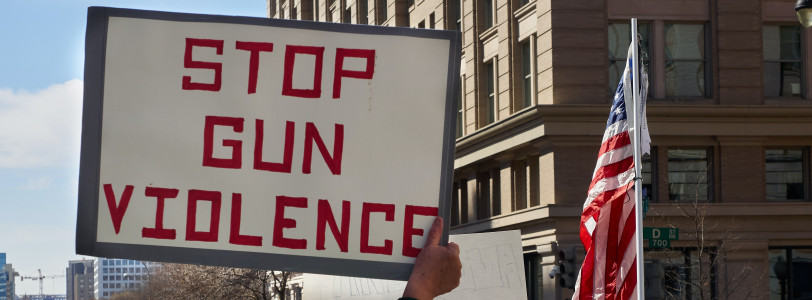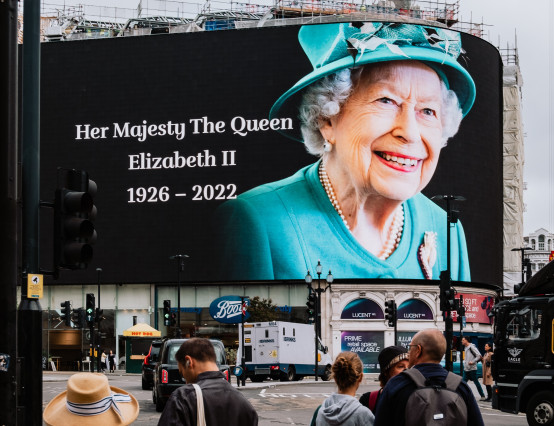The trial of Nikolas Cruz is making headlines across the world as the deadliest US mass shooting to go before a jury.
On February 14, 2018, Cruz killed 17 people when he brought an AR-15 into Marjory Stoneman Douglas High School and started shooting. The trial has now entered its second week, and as survivors of the shooting take the stand to testify against Cruz, the Jury will have to decide if he should receive the death penalty or life in prison without parole.
This mass shooting was by no means an anomaly, as the United States has suffered 369 mass shootings in 2022 alone, in part because of the country’s gun laws. Despite the large number of mass shootings that occur across the US each year, gun ownership remains guaranteed by the Second Amendment of the Constitution, and there are currently no federal laws banning semi-automatic assault weapons, military-style .50 calibre rifles, handguns, or large-capacity magazines. There is also no federal requirement for those purchasing a gun to have any firearm safety training.
This is a stark comparison to other countries across the world that have amended their gun laws after one mass shooting. After the 1996 shooting at Dunblane Primary School in the UK, parliament passed the Firearms (Amendment) Act 1997, which banned high-calibre pistols.
During the same year, the Australian government passed the National Firearms Agreement after 35 were killed and 23 were injured with two semi-automatic assault rifles. Within two weeks, the federal and state governments agreed to standardise gun laws and the law banned all semi-automatic rifles and introduced a system of licensing and ownership controls.
Not only do mass shootings have an immediate effect on all those involved, but they can also have long-term mental health impacts. According to a Brady report, “up to 95 percent of people exposed to mass shootings experience symptoms of PTSD in the early days after the incident, and most of those individuals feel the psychological effects of the trauma months later.” Some of the long term psychological effects include PTSD, substance misuse, self-harm, major depressive disorders and panic attacks.
Dr. Daniel Mosley is a psychologist who has responded to mass casualty events in his role as a volunteer with the American Red Cross Mental Health team. According to Mosley, anxiety, fearfulness and helplessness would all be normal psychological responses to such a tragic occurrence, and if you are already under emotional and/or psychological stressors, these types of events can intensify emotional fragility.
“Such an event disrupts our sense of well-being, safety and security; we all feel a bit more vulnerable,” Mosley said.
Additionally, the degree and extent of exposure to certain aspects of an event like this will cause some to be at a greater risk of mentally responding to this trauma. For example, observing death, blood, and your own life being in immediate jeopardy, will increase the risk factors for psychological disturbance. While this does not necessarily mean a person will develop PTSD, it does mean that the risk for such problems increases with a higher measure of exposure, Mosley said.
These effects can also extend to survivors’ friends, family and communities, and statistics show that children have a greater risk of experiencing emotional trauma following the event, according to the Brady campaign to prevent gun violence.
Children are more vulnerable because they are more dependent on others to keep them safe, and they have fewer life experiences to prepare them with coping skills, Mosley said. But children of different ages will likely have different responses to this trauma. Younger children can feel helpless; they need to know where they will be safe and that their care-givers are safe. Older children may become preoccupied with the details and may fear a reoccurrence. Teenagers are better able to take an active part in recovery, but they may also react with risk-taking behaviour or become fearful of leaving home and isolate.
So, how can we help those who have experienced such intense trauma?
While everyone affected by a mass shooting will go through some type of recovery process and may be at risk of developing mental health problems, Mosley said it is important not to presume there will be deep psychological damage. While stress is the most common reaction, resilience is the second most common response, so most will not suffer long-standing psychological problems. This resilience is evident in the work of survivors, like those of the Marjory Stoneman Douglas shooting, some of whom created the March For Our Lives organisation, which is “dedicated to promoting civic engagement, education, and direct action by youth to eliminate the epidemic of gun violence.”
“All of us will go through some type of recovery process and need to give ourselves permission to experience ups and downs during that recovery,” Mosley said.
While not everyone will develop mental health problems as a result of trauma, the availability of psychological support is critical. According to Mosley, not everyone will need professional support, but just knowing it is there makes a big difference. The attitude of “I can tough this out” can be a hindrance to recovery. The individual’s support network needs to consistently communicate the usefulness and acceptability of asking and receiving psychological support; when that is absent, it becomes more difficult for the individual to reach out.
However, if the event continues to impact an individual’s day-to-day functioning, that is a signal for more professional help to deal with the continuing emotional impact, understand triggers and continue to build resilience strategies. There are very effective treatments to assist in putting the emotional residuals in a psychological space where you are not continually impacted.
“An individual’s recovery does not mean the event will cease to be part of their history; it will continue to be present to some extent for the rest of their lives,” Mosley said.
Ultimately, the effects of gun violence are felt by survivors, their loved ones and their communities, and these effects have the potential to manifest in the mental health of all of these individuals. But both adults and children can be helped during the aftermath of a traumatic event by limiting media exposure, ensuring that support is available, whether that be professional or familial and being mindful of what you can control. There may never be an answer to “how could someone do this?”







0 Comments